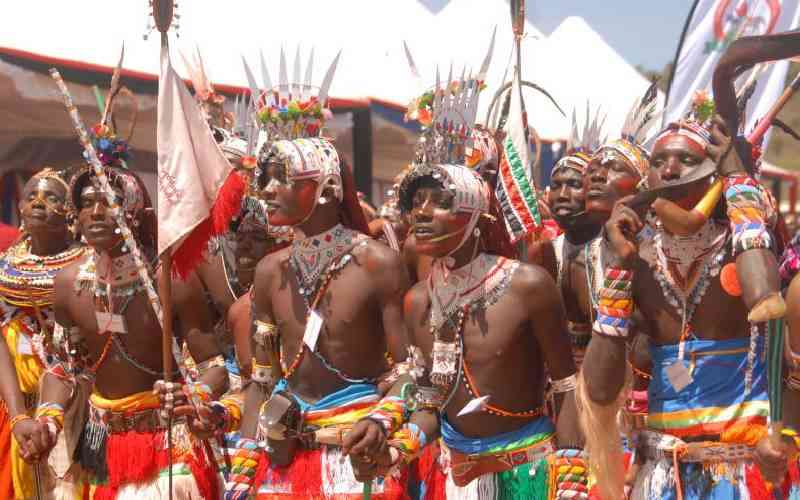×
The Standard e-Paper
Kenya’s Boldest Voice

It was colour, song and dance as the much-anticipated Maa Cultural Festival commenced at Sekenani, Narok County on Monday. The four-day festival will bring together 12,000 members from 18 Maa-speaking communities from Kenya and Tanzania.
At Masai Mara's Sekenani Gate which usually teems with tourists eager to visit the world-famous wildlife reserve, it is business unusual as various groups intend to showcase their cultural identity including food, clothing, sports, and musical talents.